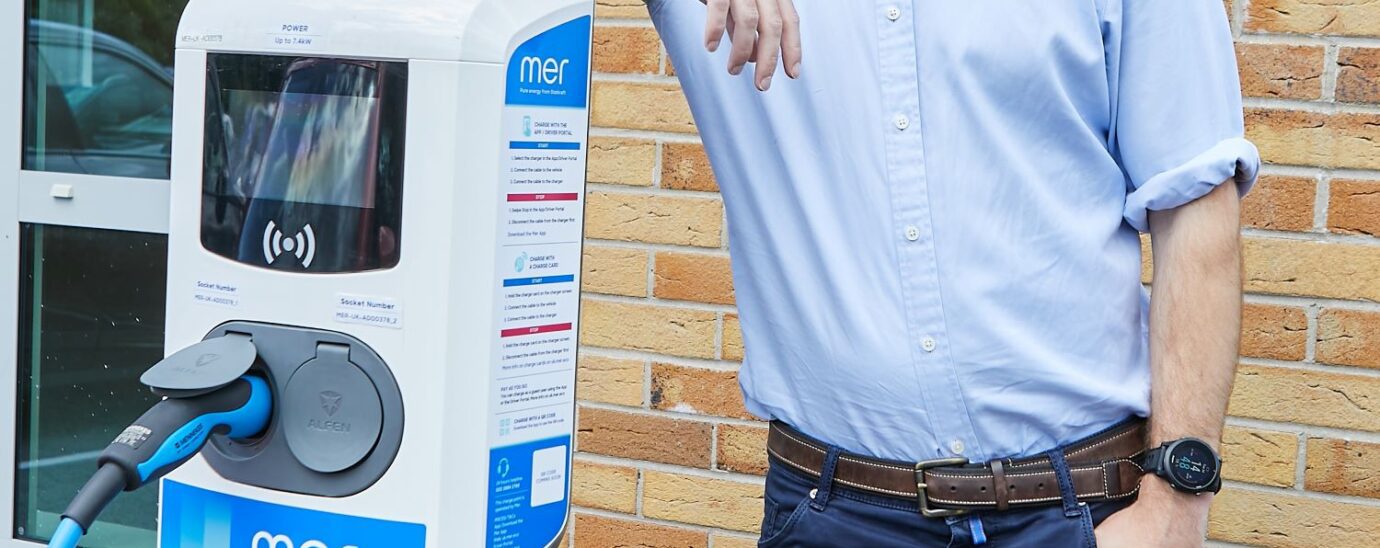Wireless: The next step in electric vehicle charging?

Nikola Tesla, the inventor of alternating current, had a vision of a future where electricity could be transmitted without the need for physical wires. He was so far ahead of his time that he was discredited for the notion and, unfortunately, did not live to see that his vision has now become a reality with the wireless charging of phones. The technology continues to be an exciting one, with the possibility of charging electric vehicles (EVs) in this way on the horizon.
However, there are some obstacles that need to be overcome before this technology can be widely implemented. Nevertheless, it has the potential to greatly improve the convenience and efficiency of EVs, as drivers would no longer need to physically plug in their vehicles for charging. Instead, the vehicles could charge wirelessly while parked.
For this to happen, manufacturers would need to align, and their respective technologies would need to be standardised. Additionally, the speed of wireless EV charging is currently slower than wired charging, and in our fast-paced modern world where time is valued, this could pose a challenge. Therefore, it is important to explore the advancements, potential and challenges in this evolving technology.
Who’s charging forward?
A number of car manufacturers are ahead of the game with respect to wireless charging, namely Sweden’s Volvo and South Korea’s Genesis. Volvo has been testing a wireless charging system for its XC40 vehicles as part of a three-year test which has resulted in a system that can charge at up to 40kW. Meanwhile, Genesis’ system can charge at a more modest 11kW, which means that it would take a Nissan Leaf with a 40kWh battery about four hours to fully charge (which would give the driver approximately 270km in range), while Volvo’s offering would be fully charged in an hour.
It is worth noting that this is faster than the 3.6kW charge that is possible from a standard wall socket, but still pales in comparison to the speed of 100kW and 350kW charging times offered by increasingly common wired charging points.
Tech we’re already using
As I mentioned earlier, wireless EV charging works with the same technology as wireless phone charging That is to say, magnetic resonance is used to transfer energy from a charging pad to a receiver built into the vehicle. This is important to note because some industry experts believe that the bottleneck in charging technology lies not with the charging pad itself, but with the vehicle’s battery management system. Upgrading this system would enable much faster charging speeds, which is crucial not only to compete with wired chargers but also to take full advantage of the benefits of wireless charging.
In comparison to wired charging, where drivers have to physically plug in chargers and initiate the process through a terminal, wireless charging would allow for charging whenever the vehicle is parked. This is especially beneficial for quick charging sessions, which are more efficient with faster chargers.
Moreover, the operation of wireless chargers is expected to be wireless as well. This means that instead of needing a terminal like with wired chargers, the technology could directly communicate with the vehicle using wireless technology for payment purposes. Since wireless charging is primarily expected to be used in short bursts rather than long periods, this wireless payment interface would be highly practical.
Thinking long-term
The current infrastructure for wired charging is getting more advanced, with more than 45,000 public charging points in the UK and growing rapidly, with more charge points at private businesses and residences. Clearly, it is not feasible to tear out all of the existing chargers and replace with a new technology that can only be used on a smaller number of vehicles. Just as it may not be possible to upgrade many of the 810,000 EVs on the UK’s roads to use wireless charging, so new vehicles will need to come onto the market that have wireless charging technology.
Although the sector has made strides, we’re still getting the current infrastructure to a stage where EVs can truly compete with the traditional ease of refuelling an ICE vehicle at a petrol pump.
Wireless future-gazing
The future’s exciting but even though I’d argue there are clear advantages that wireless charging may offer, it shouldn’t take away from the here and now. This is because many UK businesses are right in the middle of or just starting to transition their fleets to the all-electric future.
I’m speaking to many companies, daily, that understand the benefits of EVs and how there is no time like the present to transition now – especially as technology and infrastructure are already rapidly improving in the run-up to the 2030 cut-off for the sale of new petrol and diesel vehicles, and beyond.
Therefore, it is important that all stakeholders stay on top of developments so they can react quickly to changing scenarios in mobility and make informed decisions during the transition.
About Allstar
Allstar is the UK’s market leading fuel, EV and expense card providers for businesses, with over 40 year’s expertise.
Accepted at over 90% of fuel sites across the UK, it has over 1.2 million cards in circulation across 50,000 businesses, giving drivers’ access to fuel spend across all supermarkets, major oil companies and motorway fuel sites. The network encompasses around 7,700 sites nationwide, alongside more than 4,000 charging locations and over 12,000 charge points across its growing electric vehicle charging network.
For more information, please visit: www.allstarcard.co.uk
About FLEETCOR Technologies, Inc.
FLEETCOR Technologies, Inc. is a leading global provider of commercial payment solutions. The company helps businesses of all sizes better control, simplify and secure payment of their fuel, toll, lodging and general payables. With its proprietary payment networks, FLEETCOR Technologies, Inc. provides affiliated merchants with incremental sales and loyalty. FLEETCOR Technologies, Inc. serves businesses, partners and merchants in North America, Latin America, Europe and Australasia.
For more information, visit fleetcor.com